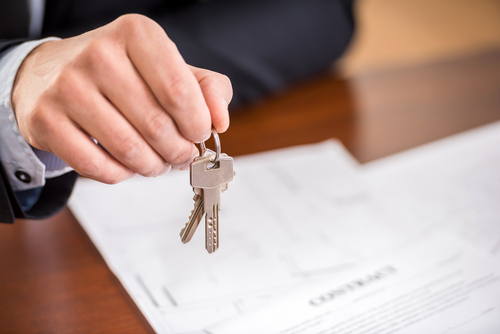
Some mortgage experts recommend paying off a home loan early. The sooner you pay off a mortgage, the sooner you can achieve a measure of financial freedom. Plus, getting rid of a home loan early reduces how much you pay in interest over the life of the loan. But while a 15-year or a 20-year mortgage saves money in the long run, a 30-year mortgage might be a wiser alternative. You Can’t Put a Price on Flexibility Some people don't like the idea of debt, so they aim to pay off their mortgages as soon as possible. This is why they choose 15-year mortgages. But even if you share this mindset, you don't need a 15-year loan to achieve this. Nowadays, most mortgages don’t have prepayment penalties, which penalize borrowers for paying off their home loans before a certain period of time. Even if your loan had a prepayment penalty, your lender would only charge this penalty for the first three years of the mortgage term. Therefore, if you wanted to pay off a 30-your home loan in 5 years,… Read more

Getting approved for a mortgage loan isn’t as easy as getting a car loan or a credit card. Mortgage lenders don't approve everyone for financing, and banks have their own set of strict lending guidelines. The underwriter considers your entire financial picture to determine if you're a good candidate for a loan. And unfortunately, if the bank’s underwriter isn't confident in your ability to repay funds, you won't get the loan. So before you step foot inside a bank, you need to strengthen your finances in preparation for a mortgage. 1. Pay down debt Some people don't realize the damaging effect credit card debt can have on a mortgage loan. Even if you make your minimum payments every month on credit cards, student loans or auto loans, lenders calculate your debt-to-income ratio to determine how much you're able to receive for a property. Your total monthly debt payments including your home loan should not exceed 36% to 43% of your gross monthly income. If you have high debts, this limits how much you can borrow. And when a bank limits… Read more

Getting pre-approved is one of the first steps you’ll take when buying a house. This involves providing your lender with income information and giving the bank authorization to check your credit. Based on your income, credit history and assets, the bank can pre-approve your mortgage and determine how much you can spend on a property. But although pre-approvals prove you're a serious buyer and qualified, these approvals are conditional and don’t guarantee a mortgage. A mortgage isn't technically “approved” until the end of the underwriting process which can take 30 to 45 days. And unfortunately, numerous situations can delay a final mortgage approval. Paperwork delay During the initial process, you'll provide the lender with several pieces of documentation to help the underwriter assess whether you're eligible for the loan. This includes paycheck stubs, most recent tax returns, bank statements and other paperwork to give the bank a clear picture of your financial standing. At some point before closing, the bank may ask for additional paperwork. This is customary. This can include updated bank statements to verify assets, or an updated… Read more

It's a loan officer and underwriter’s job to help mortgage borrowers get the funds they need to purchase a home. Banking is a business, so mortgage lenders want to help as many customers as possible. But this doesn't mean every lender has your best interest in mind. Buying a home is a big financial decision and it's important to get as much information from your lender as possible. Unfortunately, there are good lenders and bad lenders. If you work with a bad lender, you risk agreeing to a mortgage that isn’t right for your circumstances. The good news is that there are ways to tell whether a mortgage lender cares about you. Ask questions A good mortgage lender doesn’t recommend a random mortgage product. Mortgage lenders who care about their customers will ask a variety of questions to get an idea of a borrower’s circumstances, and then recommend a product based on the unique needs of each borrower. There are several home loan options to choose from. The mortgage program that works for one borrower may not work for another.… Read more

After the final walk-through of a property you're purchasing, the next step is attending your mortgage closing. After your underwriter receives all documentation to complete your file—such as your most recent paycheck stub and a copy of the appraisal—he’ll send your entire loan file to the closing agent who handles the closing. The process takes place at a title company or a real estate attorney’s office. By this time you’ve already received your final Closing Disclosure form which explains your terms and mortgage costs. But even if you understand the mortgage terms, you may be unfamiliar with an actual closing. If you're a first-time home buyer, here's what you can expect. 1. How long does closing take? The length of a mortgage closing varies, and depends on whether you have questions or run into problems. On average, a mortgage closing takes about one hour or one and a half hours. Sometimes, closings are longer. For that matter, don't schedule a mortgage closing on your lunch break. Allow a couple of hours to complete the process. If you have to work,… Read more







